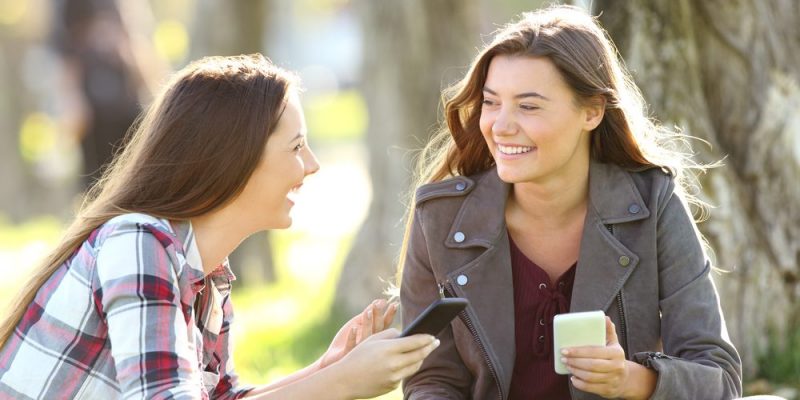We explain what social skills are, what types exist and some examples. Also, what they are for and their importance.

What are social skills?
Social skills are the set of behaviors that allow human beings to maintain positive interpersonal relationships with other people, and respond appropriately to the demands of their environment. When an individual uses these skills appropriately, a mutually satisfying situation occurs, which acts as positive reinforcement.
There are numerous definitions for social skills, as it is a complex concept. Furthermore, these depend on the cultural context in which they manifest so the same characteristic can be valued positively in one culture and negatively in another.
The term “skill” refers to a set of behaviors that are acquired through learning. That is, social skills are not a personality trait, but rather can be trained and learned For example, through role-playing games in which social situations are practiced.
Some people may have difficulties in relation to social skills, which hinders interaction in different settings, such as school, work, home or the community. These difficulties may be experienced, for example, as an inability to identify socially appropriate behaviors, social anxiety, impulsive behaviors, or conflictive relationships.
Types of social skills and examples

Social skills can be classified according to their characteristics into:
| Basic skills | Hear. Start and maintain a conversation. Ask a question. Give thanks. |
| Advanced skills | Ask for help. Participate in a debate. Give and follow instructions. Make a claim. |
| affective skills | Know and express feelings. Facing the anger of others. Express affection. Resolve fear. |
| Alternative skills to aggression | Ask permission. Negotiate. Defend your own rights. Develop self-control. |
| Stress coping skills | Deal with frustration. Respond to a review. Face the pressures. Accept adverse situations. |
| Planning skills | Make realistic decisions. Set goals. Investigate the causes of a problem. Determine your own skills. |
You may be interested in: Planning
What are social skills used for?
Social skills are necessary to interact and maintain positive social relationships Its main benefits are:
- Communication optimization. They facilitate the clear expression of ideas, opinions and emotions.
- Reinforcement in social situations They make it possible to influence others to encourage or discourage behavior. For example, praise a behavior, thank you.
- Conflict resolution. They allow disagreements to be handled constructively and negotiate in problematic situations.
- Predisposition to empathy. They increase the understanding of other people's emotions and the appreciation of other people.
- Reduction of stress in social situations. They allow a more relaxed and fluid performance when interacting with others.
- Improved self-esteem. They increase self-confidence and personal appreciation.
Importance of social skills

Social skills are essential in various situations. They are related to health and emotional well-being. Social performance directly affects the self-esteem which, in part, is built from relationships with the environment.
People who develop efficient social skills tend to perform better in other areas of life. By not having to deal with emotional or social deficiencies, your mental and emotional energy is more available.
On the other hand, social skills are necessary for learning to be effective. Human beings learn through observation and interaction with others. Social experience influences individual formation and allows for full and healthy development.
Furthermore, social skills They function as support and facilitate overcoming extreme situations such as alcoholism, drug addiction or facing complex experiences.
document.addEventListener(“DOMContentLoaded”, (e) => {
var sliderContainer, slider;
sliderContainer = document.getElementById(‘block_bb9c69c7333913140c229d1a72952a3a’);
if (typeof initSlider !== ‘function’) {
console.log(‘Swiper haven\’t been loaded’);
sliderContainer.className += ‘ fw scroll-snap’;
return;
};
options = {
direction: ‘horizontal’,
speed: 1000,
slidesPerView: ‘auto’,
// slidesPerGroup: 1,
centerInsufficientSlides: true,
// centeredSlides:true,
spaceBetween: 15,
breakpoints: {
720: {
// centeredSlides: false,
// slidesPerGroup: 2,
spaceBetween: 25
},
},
pagination: {
el: ‘.swiper-pagination’,
type: ‘bullets’,
clickable: true
},
}
slider = initSlider(sliderContainer, options);
})
References
- Horse VE (2007). Manual for evaluation and training of social skills. 21st century.
- Peñafiel Pedrosa, E. and Serrano García, C. (2010). Social skills. Editex.





